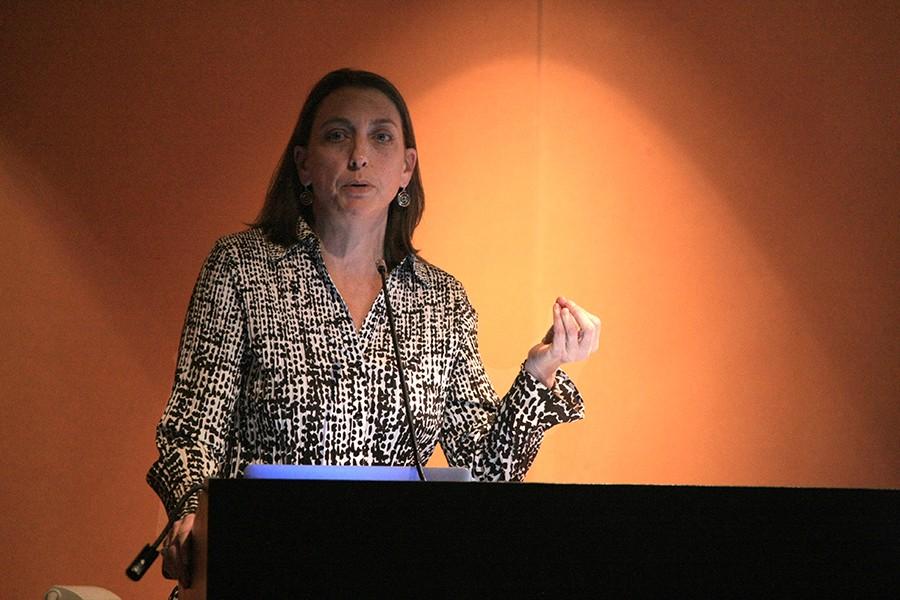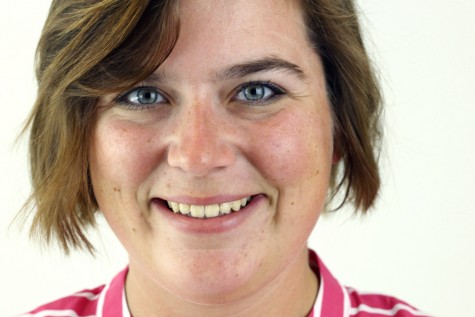Scientist discusses life on the savanna
Doctor Jill Pruetz, a professor in the Department of Anthropology at Iowa State University, spoke at the Darwin Days event in Lecture Hall of the Doudna Fine Arts Center on Monday.
February 9, 2015
Eastern’s 12th annual Darwin Day series of events kicked off with a lecture Monday night in Doudna Fine Arts Center in the Lecture Hall from Dr. Jill Pruetz.
Pruetz is a professor at Iowa State University, who studies and teaches anthropology.
Her lecture was called, “Life on the Savannah,” where she talked about her studies with chimpanzees, which is her main area of focus.
She talked about her study site in Fongoli, Senegal, which is located on the southeastern part of Sengal.
She said the relation chimpanzees have to us is the reason why she studies them.
“I think most people have heard that chimpanzees are our closest living relatives based on DNA analyses,” Pruetz said.
“But I don’t know if most people realize that we’re also their closest living relative, which means chimpanzees are more closely related to us then they are to gorillas.”
She said when she was a students she did not want to originally study chimpanzees because everyone in her field does, but when she volunteered and worked with chimpanzees and she decided she wanted to study them after finding out she liked studying them.
Pruetz said before she started studying in the Savannah, there was only one other study of chimpanzees in Senagal.
She said when she first got to Sengal she intended to open up a study site in a national park.
She preformed a survey outside the park, which helped her change he mind when she saw the chimpanzees show different behavior then the ones who lived in the park.
Pruetz shared her personal experiences with the audience and showed videos her and her team took while on the site.
She said she started her work in 2001, but it took four years to get the chimpanzees used to her and her team.
She said it was a full time effort to try and get the chimpanzees to the point to where they would let Pruetz and her team follow them around all day long.
She said as of April of 2014, she has gathered about 10 years worth of data.
She showed a power point along with her lecture where she showed the data she collected and the detailed videos and photos she took while in the field.
She said she believes that chimpanzees are the best studied wild mammal so far and nobody has corrected her on it yet.
Stephanie White can be reached at 581-2812 or at [email protected].

















































